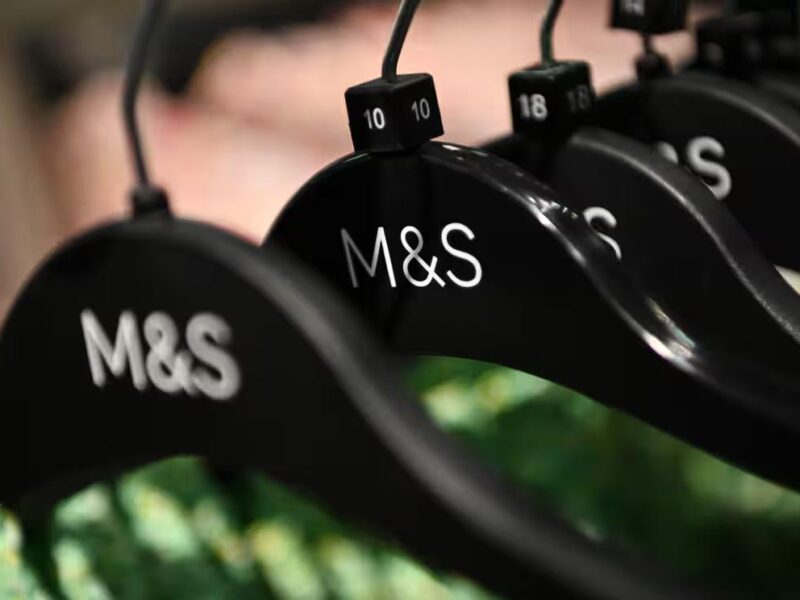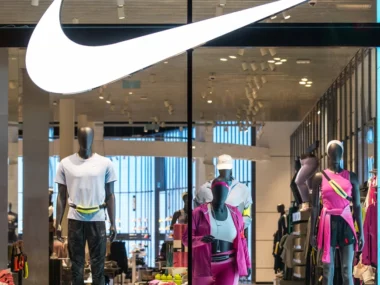In January, Marks & Spencer will distribute its first dividend since 2019 to shareholders, totaling about £20 million.
For the first time in four years, Marks & Spencer has reclaimed its position as the largest womenswear store in the UK, and this has contributed to a significantly better-than-expected 56% rise in earnings.
In addition, the store announced that it will distribute about £20 million to shareholders in January—its first dividend since 2019—as pre-tax profits surged to little over £360 million, significantly exceeding analysts’ projections.
The company attributed its better-than-expected performance to cost reductions that it claimed had increased profit margins, a healthy increase in the number of goods sold, less food discounting, and better-than-expected full-price clothes sales. On Wednesday, M&S shares increased by over 9%, making them the largest gain on the FTSE 100.
The chain’s underlying clothing sales increased 5.5% in the six months ending September 30, with good performances in denim and seasonal wear. Profit margins also expanded, from 9.8% to over 12%, as fewer items had to be offered at a discount.
In terms of value, M&S surpassed Next to become the UK’s top seller of womenswear thanks to its robust sales. When it comes to the quantity of goods sold, Primark continues to hold the top spot.
Established retailers saw an almost 12% growth in food sales; M&S attributed this to growing its product line at a faster rate than the major supermarkets, which allowed it to capture more market share. Sales of its budget range Remarksable surged by 45%, with one in five consumers’ baskets containing staples like butter and milk.
M&S CEO Stuart Machin reported that the firm was having a great start to the Christmas season, with women’s partywear sales up 50% and seasonal food orders up 25%. He added, nevertheless, that some consumers had expressed uncertainty regarding the post-holiday period.
Most clients claim they have no idea what will occur in the upcoming year. We are a little cautious because they are a little cautious.
After Next and Primark also released impressive numbers, the stronger-than-expected numbers will raise optimism for a better-than-expected holiday season for retailers, who earn the majority of their earnings in the last quarter of the year. Asos, an online specialist, is experiencing a decrease in sales.
Analysts increased their estimates for yearly profits, but M&S stated that it did not anticipate higher profits in the second half of the year. It stated that even though deflation, “erratic weather,” high interest rates, and significant worldwide events could have an influence, it would still invest in price, the creation of new stores, and the closing of existing ones.
Shore Capital, the group’s in-house broker, reported that half-year profits exceeded forecasts by 39% and that it was raising its full-year profit projections by 12% to £646 million.
In a note, analyst Clive Black stated, “To misquote the great and recently retired Michael Caine, AKA Charlie Croker of the iconic British movie The Italian Job, M&S ‘blew the bloody doors off’ in [the half-year].”
According to Machin, a £30 million investment in lowering food prices and increasing 500 lines’ quality had helped to boost sales. In the clothes segment, the company had “backed lines with authority across core and seasonal product” while simultaneously enhancing its reputation for style and value.
The ongoing renovation of the group’s shop estate, which included moving two locations—to Leeds and Liverpool—and closing four aging branches in the past six months, as well as opening a new location in Croydon, also improved performance. Six more businesses received renovations.
A negative aspect of the data was an increase in M&S’s portion of losses at its joint venture, online grocery store Ocado Retail. Due in part to a warehouse shutdown and less-than-anticipated sales growth, the company’s overall losses increased to almost £80 million, with its venture loss rising to £23.4 million in the second half from £0.7 million in the previous year.
One advantage for M&S is that it is now doubtful that a final payment associated with the purchase of a 50% share in Ocado’s retail division will be payable. While negotiations on the payment with Ocado are still ongoing, M&S announced that it did not anticipate having to make the estimated £191 million payment next year, which helped to raise its half-year profits by £64.7 million.











